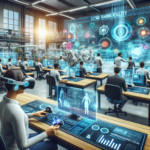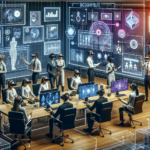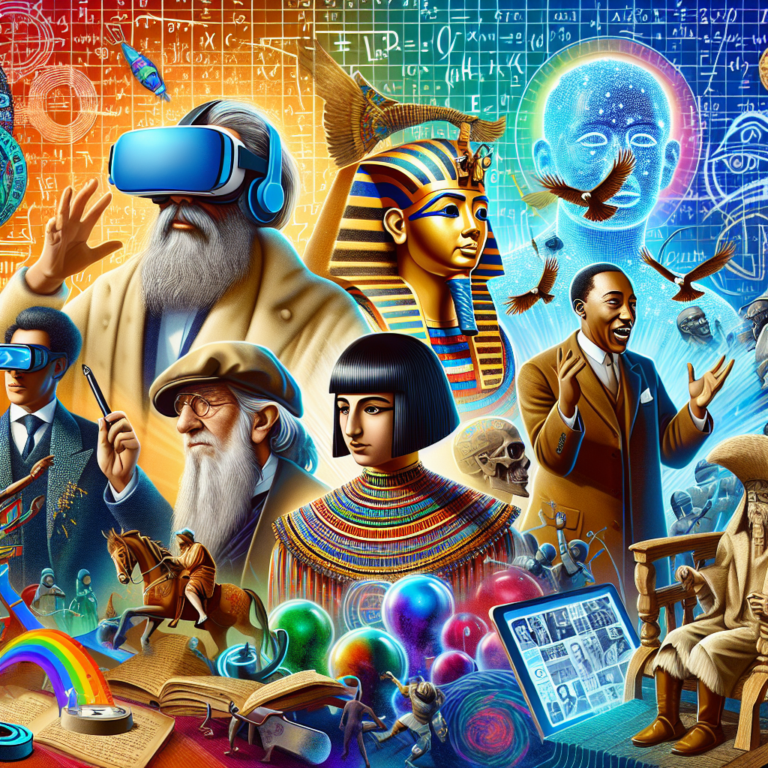VR History Education : Experiencing Life as Iconic Figures Through Virtual Reality
The Evolution of Virtual Reality
VR History Education : Virtual reality (VR) has evolved from a niche technology into a mainstream tool that transports users into immersive environments. Its applications range from gaming and training simulations to educational experiences. But what if we could transcend the here and now to live out the lives of historical figures? Imagine donning a VR headset and stepping into the shoes of Albert Einstein, Cleopatra, or Martin Luther King Jr. The possibilities are not only fascinating but also educational.
The Educational Potential of VR
VR History Education : Virtual reality offers unique educational opportunities. Here’s how it can transform the way we learn about history:
- Experiential Learning: Traditional learning methods often involve reading or lectures. In contrast, VR allows users to experience historical events as if they were actually there. For example, one could walk the streets of ancient Rome or hear the speeches that changed the course of history.
- Enhanced Engagement: When people are engaged, they learn better. Virtual reality captivates users, making history not just a subject but an adventure. Imagine interacting with famous figures, asking questions, and experiencing their realities firsthand!
- Multi-Dimensional Understanding: It’s one thing to read about the American Revolution; it’s quite another to feel the tension in the air while standing alongside the patriots. VR provides a multi-sensory experience that deepens understanding!
Imagining Life as Historical Icons
What if you could truly embody a historical figure? Here are some personas you might explore:
1. Albert Einstein – The Genius of Modern Physics
VR History Education : Imagine stepping into the mind of Einstein during his groundbreaking discoveries. In this VR simulation, you could:
- Witness the Birth of the Theory of Relativity: Experience the eureka moments in real time as you navigate 1905 Zurich, unraveling the mysteries of space and time.
- Interact with Contemporary Thinkers: Engage in thought-provoking dialogues with other scientists of the era, challenging their ideas and solidifying your own theories.
- Feel the Weight of Responsibility: Understand the ethical dilemmas he faced as scientist, innovator, and pacifist in a world on the edge of conflict.
2. Cleopatra – The Last Pharaoh of Egypt
Transport yourself to ancient Egypt and experience the life of Cleopatra, a powerful, strategic leader. In this experience, you might:
- Walk Among Pharaohs: Explore the opulence of the Egyptian court while navigating the treacherous waters of politics and power.
- Strategize Alliances: Form alliances with influential figures like Julius Caesar and Mark Antony. Make choices that alter the course of your kingdom!
- Embrace Culture: Participate in ancient festivals, engage with scholars, and witness the construction of the magnificent Library of Alexandria.
3. Martin Luther King Jr. – A Voice for Change
VR History Education : Step into the world of the American Civil Rights Movement. Here’s what a VR experience could offer:
- Attend Iconic Events: Join in on significant protests, such as the March on Washington, and hear the spirited cheers of those advocating for equality.
- Deliver Empowering Speeches: Experience the impact of words firsthand as you deliver parts of his famous “I Have a Dream” speech and feel the collective hope and determination of the crowd.
- Forge Alliances: Engage with fellow activists and strategize campaigns that will alter the course of American history.
Social and Ethical Considerations
While the prospect of experiencing life as historical figures through VR is enticing, it’s crucial to address the social and ethical implications:
- Cultural Sensitivity: Developers must ensure that experiences are respectful and accurate to the historical context, avoiding simplifications or exaggerations of real-life events.
- Representation Matters: It’s essential to include diverse perspectives. A VR timeline featuring figures from various backgrounds can provide a richer understanding of history.
- Emotional Resonance: Engaging with sensitive periods should be approached with care, as users might encounter trauma and suffering. Developers must provide context and support.
The Future of VR in Historical Education
As technology advances, the potential for VR to deepen our understanding of history will only grow. What does that future look like?
- Collaborative Learning: Educational institutions might integrate VR into their curriculum, allowing students to explore history from various angles, learning from different figures and events.
- Customizable Experiences: Users could tailor their historical journeys, focusing on aspects of history that resonate with them or areas they wish to explore further.
- A Gateway to Empathy: By putting ourselves in the shoes of those who lived before us, we develop empathy and understanding, bridging cultural gaps and promoting awareness of historical injustices.
Final Thoughts
Virtual reality has the potential to revolutionize how we learn about history, pulling us into experiences that are as engaging as they are educational. By allowing users to experience life as different historical figures, we can foster a deeper connection to our past, nurture curiosity, and inspire future generations to learn from the successes and failures of those who shaped our world. 🌍✨
Imagine the stories we could tell!




0 Comments